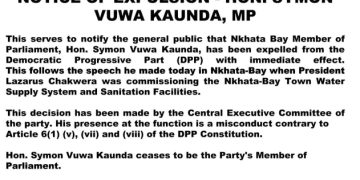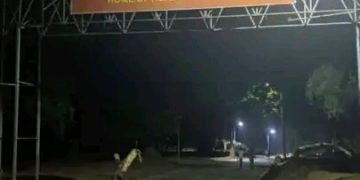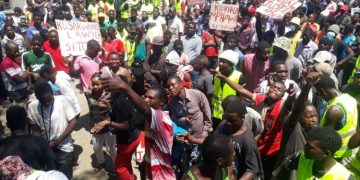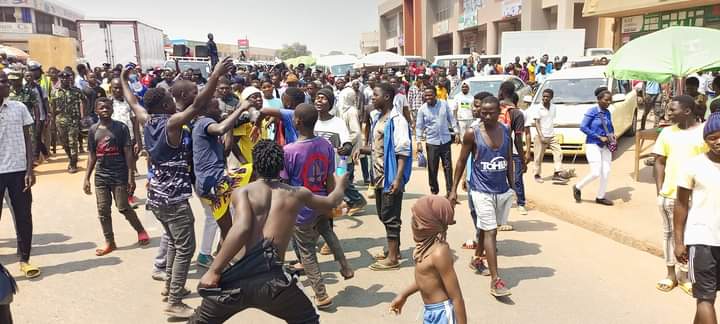There was tension in Lilongwe on Thursday morning as vendors clashed with demonstrators led by Bon Kalindo, as vendors sought to protect their goods amid the planned protests against the government.
Kalindo had announced his intention to lead demonstrations in Lilongwe, but this decision was met with resistance from the city’s vendors, who argued that their businesses would be severely disrupted.
Several vendors spoken to lamented the impact of demonstrations on their business saying any disruption could result in significant financial losses.
Charles Namiyasi Jere, a fresh fruits and vegetables vendor near the Main Mosque in Old Town, said: “Some of us obtained loans, and to miss the whole morning without plying our business is a huge loss and will even affect our repayment plan.”
Jere acknowledged the demonstrators’ right to protest but emphasised that vendors also have the right to earn a living without unnecessary disruptions.
One of the key issues raised by the vendors was the delay in the start of the demonstrations. As the protesters took their time assembling, vendors found themselves unable to display their merchandise and serve their customers, which further exacerbated their frustration.
Mary Kanyamula, a secondhand clothes vendor, alleged that some demonstrators took advantage of the situation to steal their merchandise.
“We noted that some of the demonstrators had started stealing our things. We could not stand that, so we defended our property, and thankfully, the police were there to assist us by chasing them,” Kanyamula explained.
The clash between vendors and demonstrators highlights the delicate balance between the exercise of freedom of expression and the right to earn a living.
While citizens have the right to voice their concerns and protest peacefully, it is essential to consider the unintended consequences that such protests may have on other members of society, particularly those whose livelihoods depend on their businesses.











































